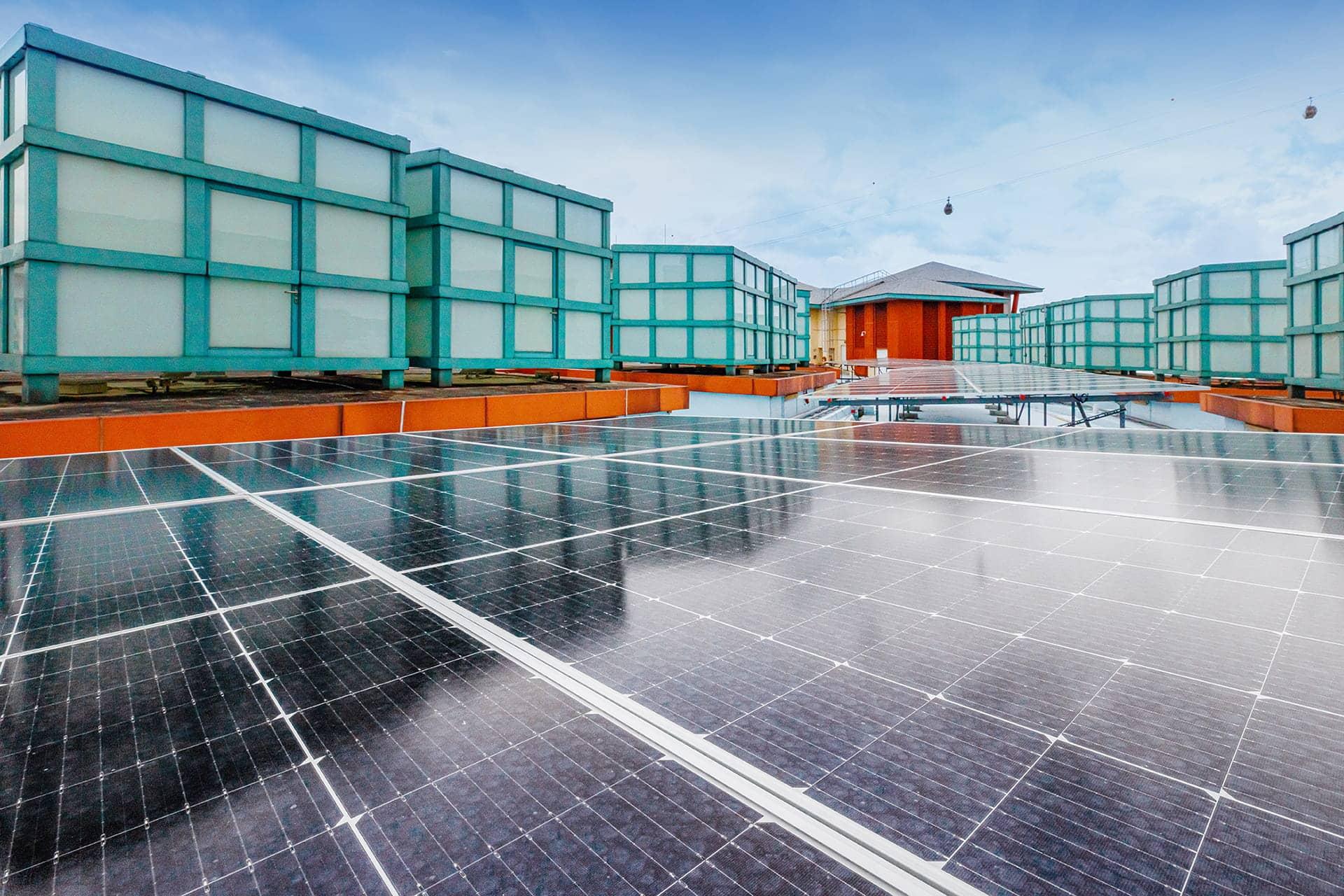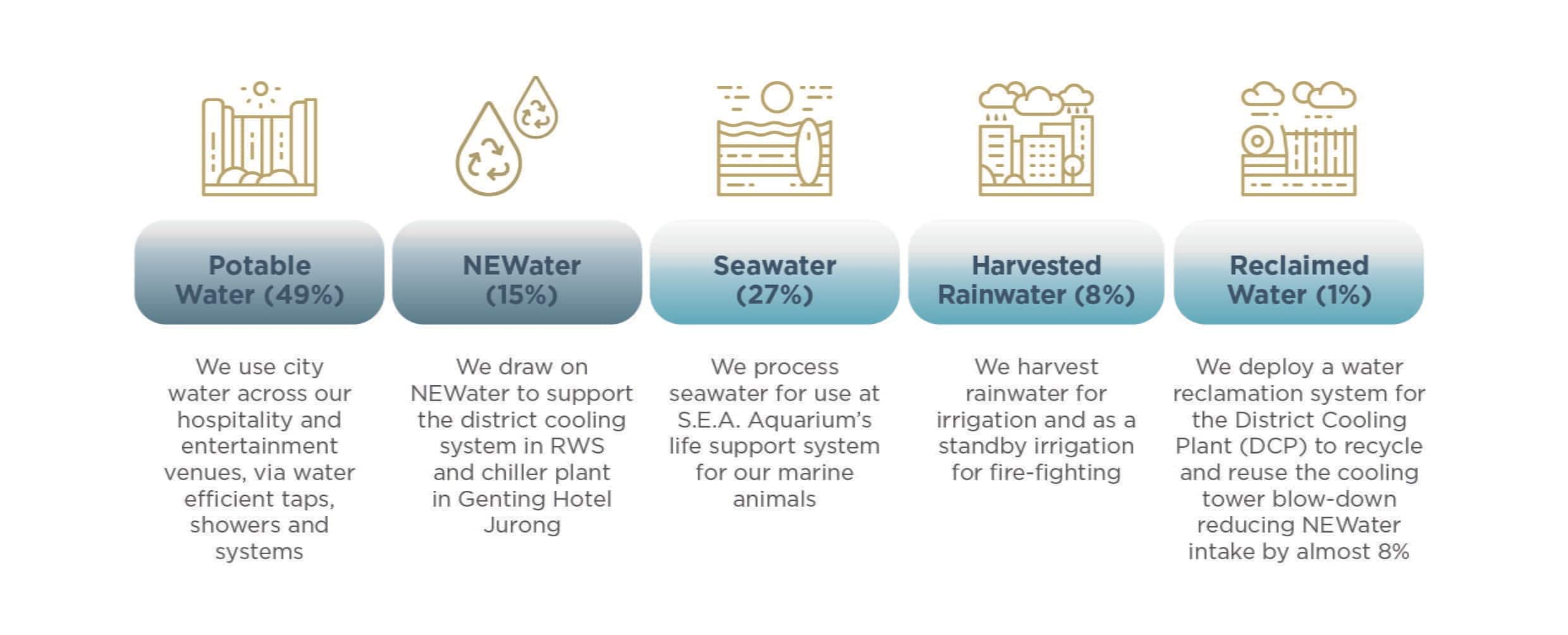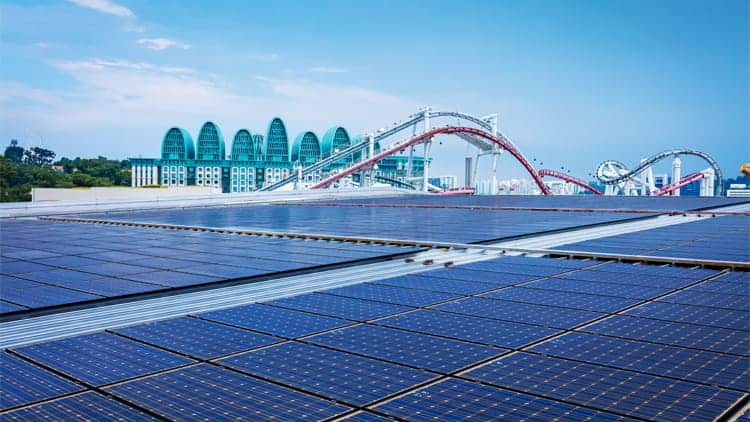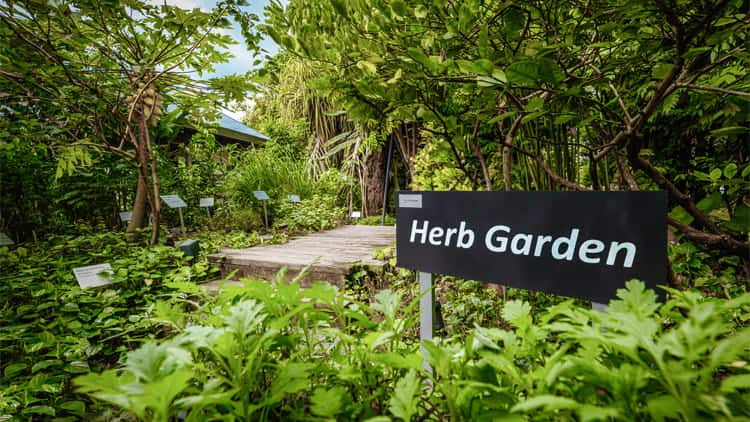Climate and the environment
Powered by renewable energy

At RWS, we’re making the most of our position as an island resort by harnessing the power of the sun and waves that surround us. To achieve this, we've installed solar panels on the rooftops of our resort, including buildings within our Universal Studios Singapore and our hotels – we’re home to one of the largest solar panel networks in Singapore!
Five Water Taps

Many businesses still rely primarily on potable water from the Public Utilities Board (PUB), in part due to many regulatory, technological, and monetary challenges such as the costs of purifying water for potable use. At RWS we’ve taken a slightly different approach of developing our own water sources. We have been able to successfully diversify our water sources, with four alternative sources supplying with 51 % of our overall water consumption in the resort. These four alternative sources of water supply are seawater (27%), NEWater (15%), rainwater (8%) and reclaimed water (1%).
Preserving Our Backyard
Beyond our work in the S.E.A. Aquarium, RWS sits next to one of Singapore’s most surprising yet little-known pockets of natural heritage, an extensive and well-preserved 2.9 hectare coastal forest which we regularly survey and protect. In the latest survey by Nature Society completed in 2022, a total of 93 plant species were recorded in the RWS forest, of which 32 of them or more than one-third are designated as threatened. The unusually high proportion of threatened species in the forest shows that the RWS forest is an important refuge not only for these rare species, but for all the plants and animals that call it home.



